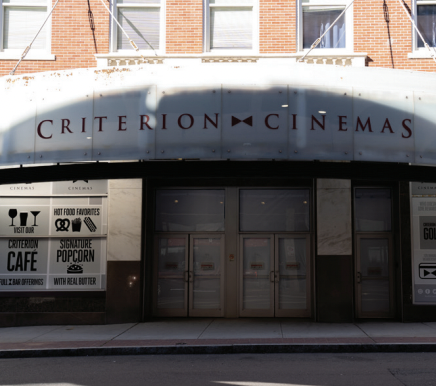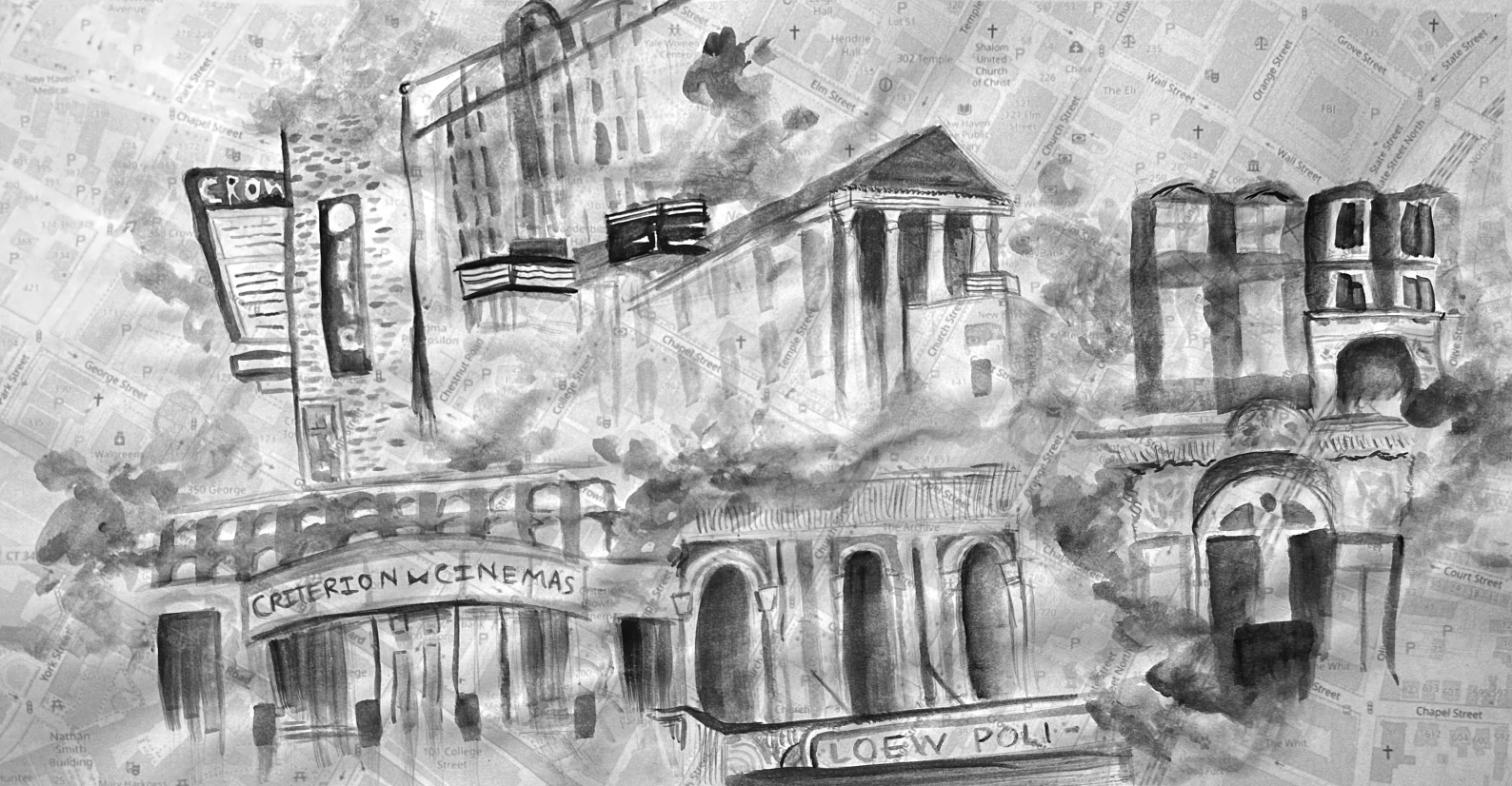After a beloved New Haven movie theater closed, enthusiasts are keeping the reels rolling.
Born and raised in New Haven, Raizine Bruton fell in love with movies as a kid, watching black-and-white classics with her stepfather. In 2012, Bruton started working at Criterion Cinemas, catching snippets of screenings in her downtime.
Bow Tie Partners opened Criterion in November 2004, its new glass marquee a rare sight to behold. By then, New Haven had seen some twenty theaters come and go. A fire destroyed the Rialto Theater in 1921. In the nineteen-sixties, the outdoor Cedar Hill Airdome was razed for the construction of I-91. The Paramount Theater, originally the Olympia Theater, used to hire art students from Yale to paint movie posters but shuttered in the nineteen-seventies.
Criterion stood out from the rest. Many moviegoers loved the intimate atmosphere and its specialty in independent art movies that were hard to find anywhere else. Criterion quickly came into its own and had its fair share of regulars.
“I remember there being a huge Mets fan who’d always come decked out in Mets gear,” Bruton said. “We’d see a lot of bus drivers too, earlier in the day, and they’d get the theater mostly to themselves.”
Bruton told me that attendance tailed off over the years. “Patrons began asking for renovations that Criterion wasn’t able to or didn’t want to make happen,” she said, referencing requests for better sound quality and comfier seats. According to Bruton, part of Criterion’s audience flocked to other local options, like the Cinemark theaters in North Haven and Milford.
In the summer of 2023, Bow Tie Partners reached out to city leaders and stakeholders to brainstorm what the future of Criterion would look like. They approached New Haven’s Economic Development administration as a listening partner.
Adriane Jefferson, New Haven’s Director of Cultural Affairs, was one of many attending the meeting. She shared that Bow Tie came in with concerns both about their own business and with the general trend where cinemas across the country did not see strong financial returns. “I think they recognized the need for a new business model,” Jefferson said.
On October 12, 2023, Criterion screened its last evening show, Stop Making Sense. Sandwiched between brick apartment buildings, its now hollow halls serve as a bleak reminder that New Haven is left without a commercial movie theater.
Some movie-goers were devastated by the news. “It’s like losing an old friend,” said Paul Wessel, who had visited Criterion almost every month throughout all its nineteen years of operation. “With it gone, it feels like a hole in my life, a hole in the city’s life.”
Ralph Cherubin, whose family moved to West Haven in 2015, reminisced fondly about Criterion’s special screening of Pizza, a Love Story: “It was really special seeing a New Haven pizza documentary on the screen of a local New Haven theater. We haven’t lived here our whole lives. At that moment, though, I felt a connection to this place.”

Wessel shared this sentiment. “It’s important to have spaces where people gather together to experience life,” He said. “Movies make it easier to talk about and understand yourself.”
For now, the Yale Film Archive offers the only public film showings in the city. “You could stream Indiana Jones at home tonight,” Yale Film Archivist Brian Meacham told me as he prepared for a screening the next day. “But we’re gonna sell out tomorrow, and I know it. People want to see pictures on the big screen, with a booming sound and in a big crowd. There’s no replacement for that.”
It’s a hard truth to bear, but moviegoers may need to move away from the brick-and-mortar theater and reimagine what live cinema can look like otherwise.
Perhaps Bruton’s journey best embodies the evolution of film and the larger transformation in how the public engages with arts and culture. She is now an aspiring filmmaker and works at Best Video Film & Cultural Center in Hamden. Best Video bears a nostalgic charm. Beyond the shelves and shelves of colorful movie titles, the center has a simple performance space, which often entertains local music groups. Last March, Bruton and a colleague used the space to host their own film series: “Portrait of a Cinema on Fire: Feminist Filmmakers.”
“[Organizing the event] was one of the best experiences that I’ve had. An opportunity to get people I care about to see the movies I think are worth watching,” Bruton reflected. “It’s an incredible feeling to have discussions with people about cinema in person, and watch others be moved.”
Bruton’s screening was the first of many at Best Video, with most of them supported by a grant from Connecticut Humanities.
For the foreseeable future, it may be independent organizations that fill part of the void Criterion left. Black Haven, the only Black film organization in Connecticut, hosted pop-up screenings in New Haven as part of a three-day festival in January 2023. The organization also invited a series of filmmakers to host screenwriting and directing workshops. Film competitions based in New Haven, like the 48 Hour Film Project or 24 Hour Film Festival, also offer avenues for new creatives to make and showcase their own work.
Bruton remains hopeful that fellow movie lovers will come together and find ways to make a theater for themselves—even if that means pop-up events or eventually a smaller cinema. Whatever shape the theater takes, Bruton wants to make sure that people can sit together and experience film in the same space.
“Great films have a way of reaching us as people. You can see yourself, you can see people you love, you can visit places that you’ve never imagined,” she said. Bridging the gap between film and audiences, however, will require continual innovation. Bruton looks forward to collaborating with anyone who may be interested in cinema and community: “We want a place to go to and watch film. We just have to work together and make it happen.”
– Clark Wu is a first-year in Davenport College.


